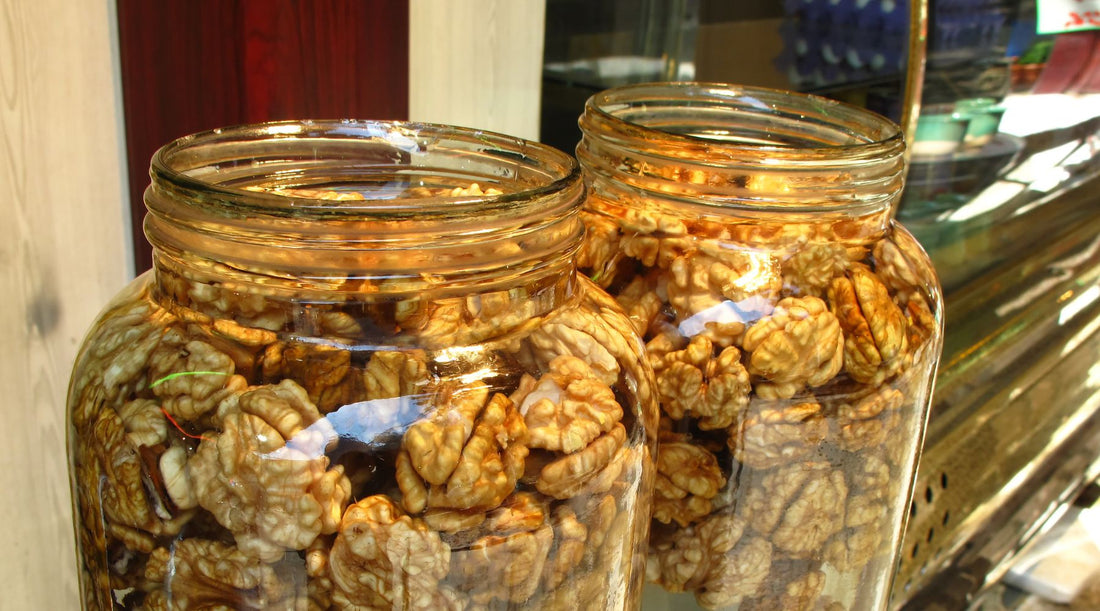Walnuts, nature's own nutritional marvel, have long held a revered place in our diets, known for their rich profile of health-enhancing nutrients. At Chinchiolo Farming Co., we delve deeper into the world of walnuts, exploring an often-overlooked aspect of these versatile nuts: sprouting. The process of soaking and dehydrating walnuts not only enhances their inherent qualities but also unlocks a spectrum of benefits that cater to a holistic health experience.
The Sprouting Process: A Brief Overview
Sprouting walnuts involves two primary steps: soaking and dehydrating. Soaking walnuts in water initiates the germination process, breaking down the phytic acid and enzyme inhibitors that can make raw nuts harder to digest. This soaking period can range from several hours to overnight, depending on the desired outcome. Once soaked, the walnuts are then dehydrated at low temperatures. This careful dehydration ensures that the walnuts retain their nutrient density while acquiring a crunchier texture and a more pronounced flavor profile.
Health Benefits of Sprouted Walnuts
Enhanced Digestibility: The sprouting process transforms walnuts, making them gentler on the digestive system. By breaking down complex compounds, sprouted walnuts become easier to digest, allowing the body to absorb their nutrients more efficiently.
Increased Nutrient Availability: Soaking and dehydrating walnuts increase the availability of vital nutrients such as Omega-3 fatty acids, which are crucial for heart health, and antioxidants, which combat oxidative stress. This process also enhances the bioavailability of minerals like calcium and magnesium, supporting bone health.
Reduced Inflammatory Properties: Omega-3 fatty acids, abundant in walnuts, are known for their anti-inflammatory effects. Sprouting further accentuates these properties, making sprouted walnuts a potent food for combating inflammation and reducing the risk of chronic diseases.
Promotion of Hair and Skin Health: The nutrients in sprouted walnuts, particularly their rich protein and healthy fat content, contribute significantly to hair and skin health. They offer moisturizing and anti-aging benefits, making them a natural choice for those seeking radiant skin and strong, healthy hair.
Storing Sprouted Walnuts
To ensure the longevity and freshness of sprouted walnuts, proper storage is key. Store them in a cool, dry place, ideally in air-tight containers or bags to minimize exposure to air and avoid absorption of odors from other foods. This will help maintain their nutritional quality and delightful taste for an extended period.
Incorporating Sprouted Walnuts into Your Diet
Sprouted walnuts can be a versatile addition to your daily meals. From being a crunchy topping on salads to a nutritious ingredient in your morning smoothie, the possibilities are endless. They add not just nutritional value but also a delightful texture and flavor to various dishes.While we at Chinchiolo Farming Co., Inc. do not sprout walnuts here is a step by step guide to do so.
Step-by-Step Guide to Sprouting Your Own Walnuts
Sprouting walnuts at home is a simple and rewarding process. Follow these steps to unlock the full potential of this nutritious snack:
1. Selecting Your Walnuts
- Choose High-Quality, Raw Walnuts: Start with fresh, raw walnuts. Ensure they are unsalted and unroasted for optimal sprouting results.
2. Soaking the Walnuts
- Rinse and Clean: Rinse the walnuts thoroughly under cool running water to remove any debris.
- Soaking: Place the walnuts in a large bowl and cover them with ample cool, purified water. The water level should be at least a couple of inches above the nuts, as they will expand during soaking.
- Duration: Leave the walnuts to soak for 4 to 8 hours. Overnight soaking is often convenient and effective.
3. Draining and Rinsing
- Drain the Water: After soaking, drain the walnuts and discard the soaking water.
- Rinse Again: Rinse the walnuts thoroughly under cool running water to remove any remnants of phytic acid or enzyme inhibitors released during soaking.
4. Dehydrating the Walnuts
- Preparation for Dehydration: Spread the soaked walnuts in a single layer on a dehydrator tray. If you don't have a dehydrator, you can use a baking sheet lined with parchment paper for oven dehydration.
- Dehydration Process:
- Using a Dehydrator: Dehydrate at 115°F (46°C) for 12-24 hours or until completely dry and crisp.
- Using an Oven: Set your oven to the lowest possible temperature (ideally below 150°F or 65°C). Place the tray in the oven and leave the door slightly ajar to allow moisture to escape. Dehydrate for 12-24 hours, checking periodically for dryness and crispiness.
5. Storing Sprouted Walnuts
- Cooling: Allow the sprouted walnuts to cool to room temperature.
- Storage: Store the sprouted walnuts in an airtight container. Keep them in a cool, dry place, such as your pantry or refrigerator, to maintain freshness.
6. Enjoying Your Sprouted Walnuts
- Ready to Eat: Your sprouted walnuts are now ready to be enjoyed! They can be eaten as a snack, added to recipes, or used as a topping for salads and other dishes.
At Chinchiolo Farming Co., we're committed to exploring and sharing the myriad ways in which walnuts can enrich our lives. The sprouting process, with its multitude of health benefits, is just another reason to incorporate these nuts into your diet. Experience the enhanced taste and nutritional benefits of sprouted walnuts and join us in celebrating this humble yet powerful addition to the world of natural health.


